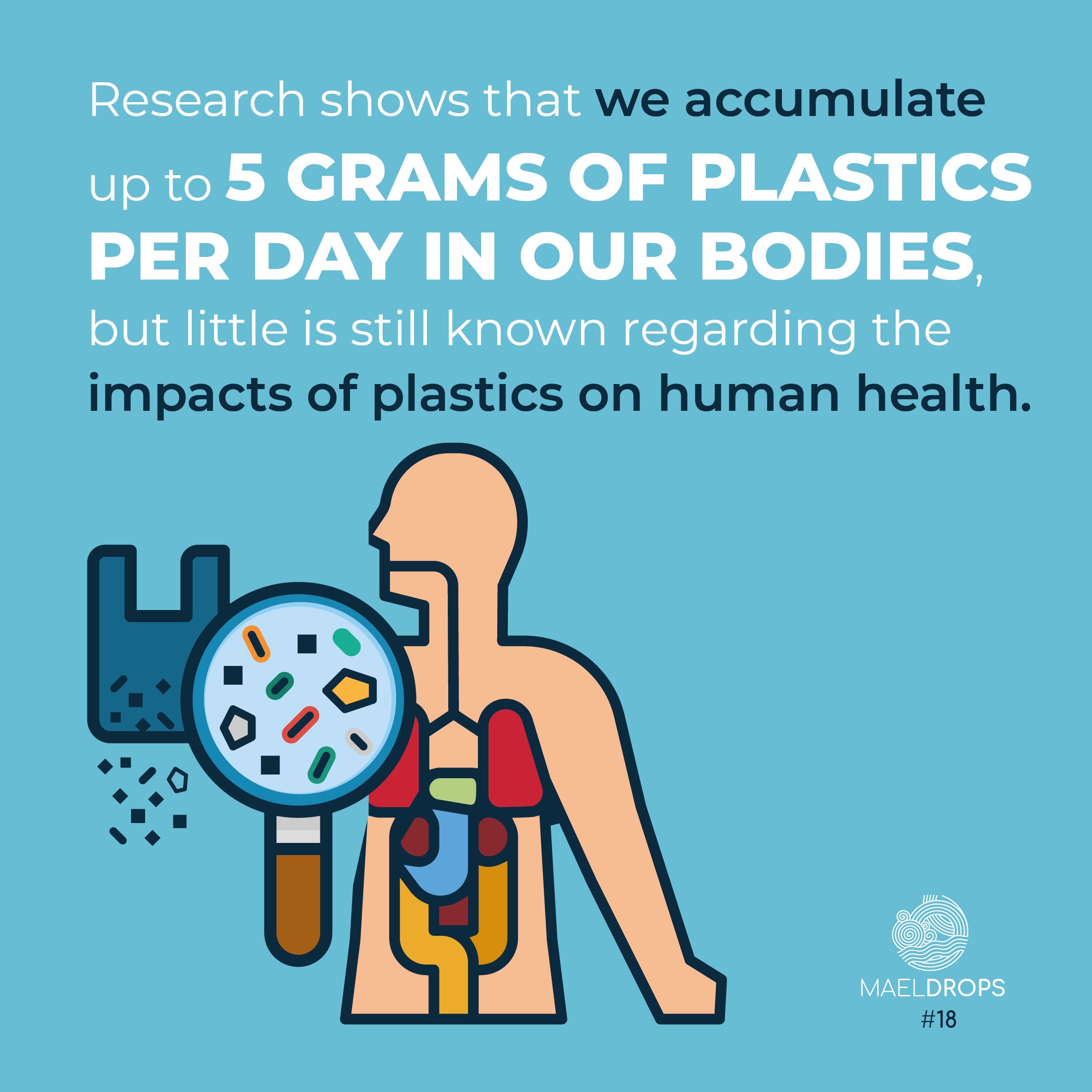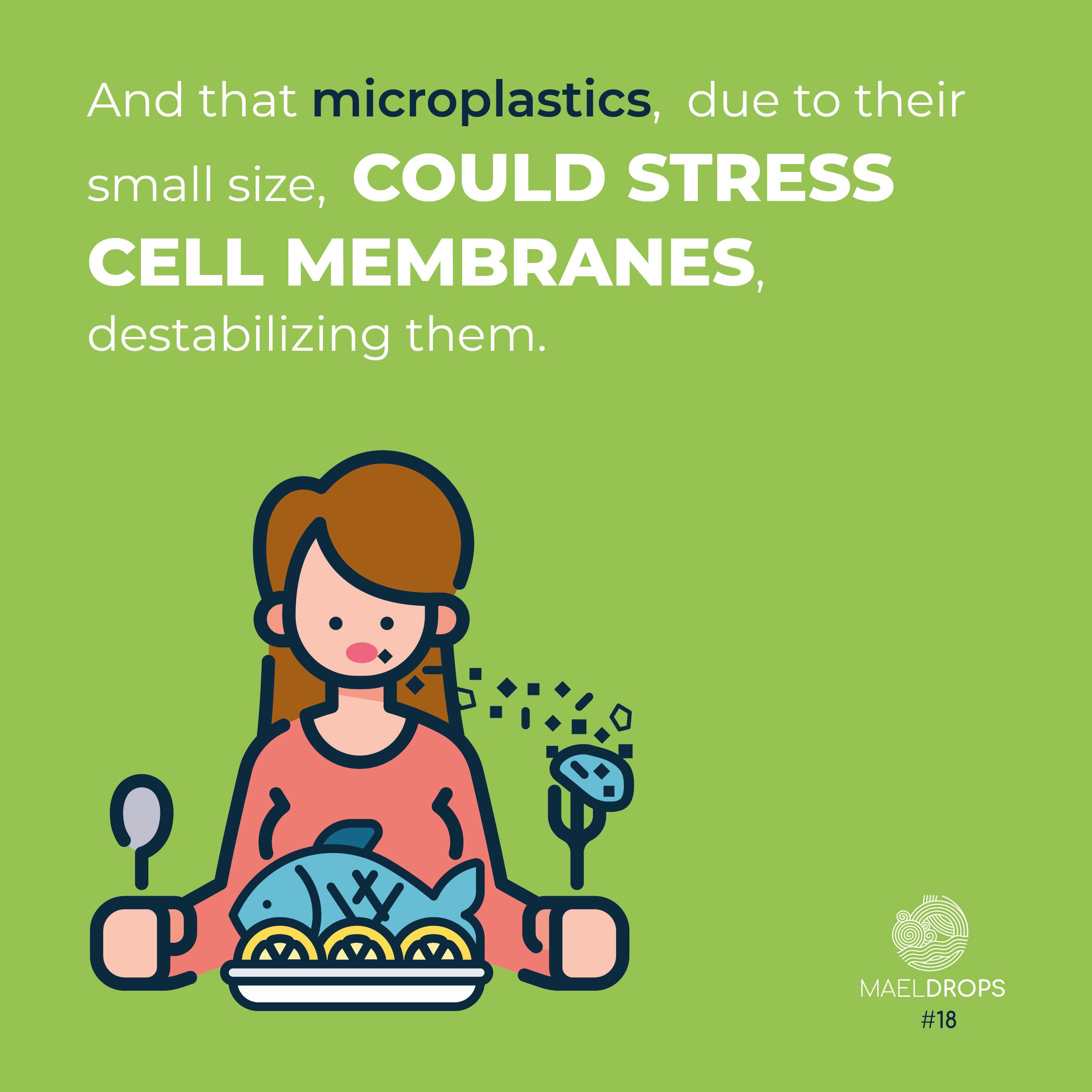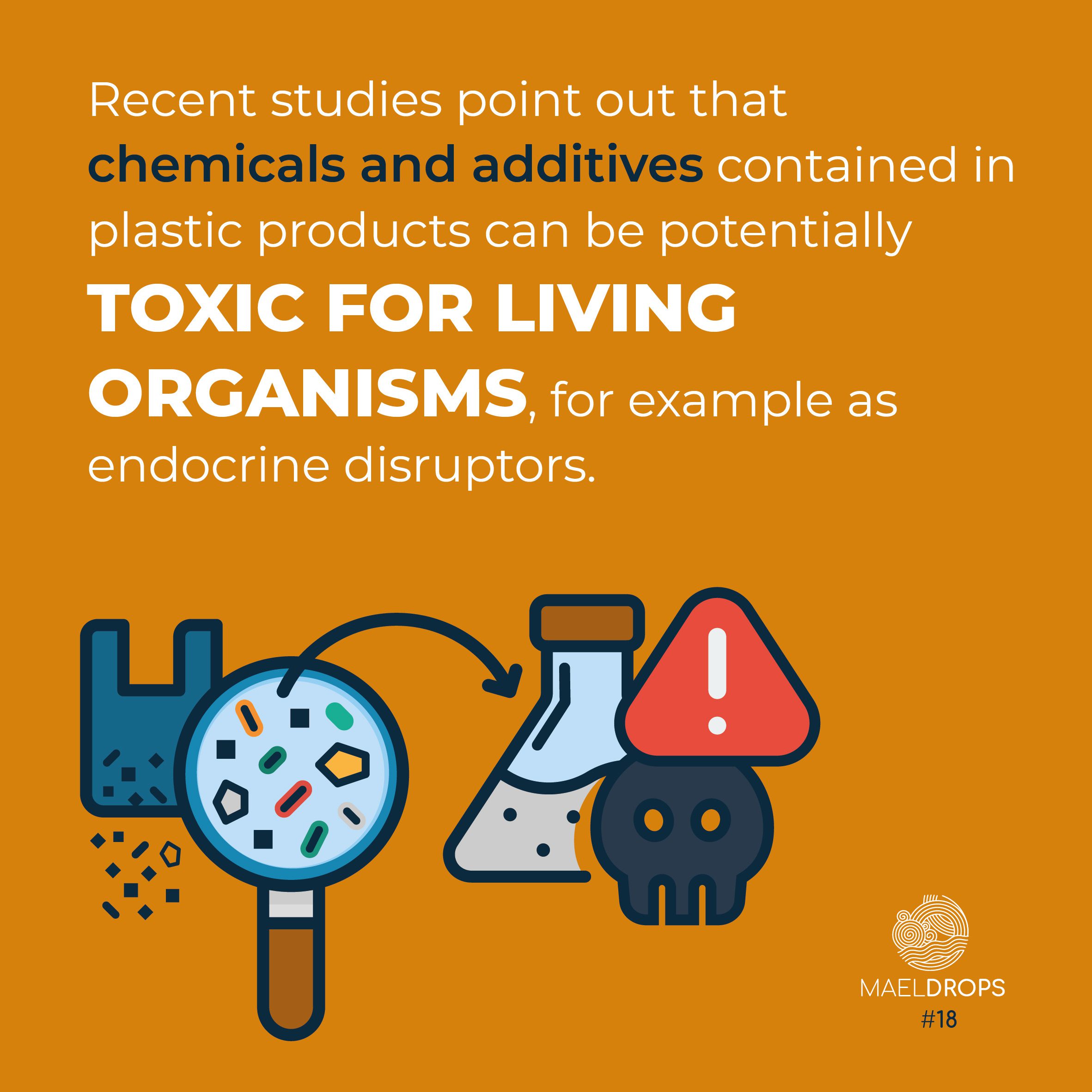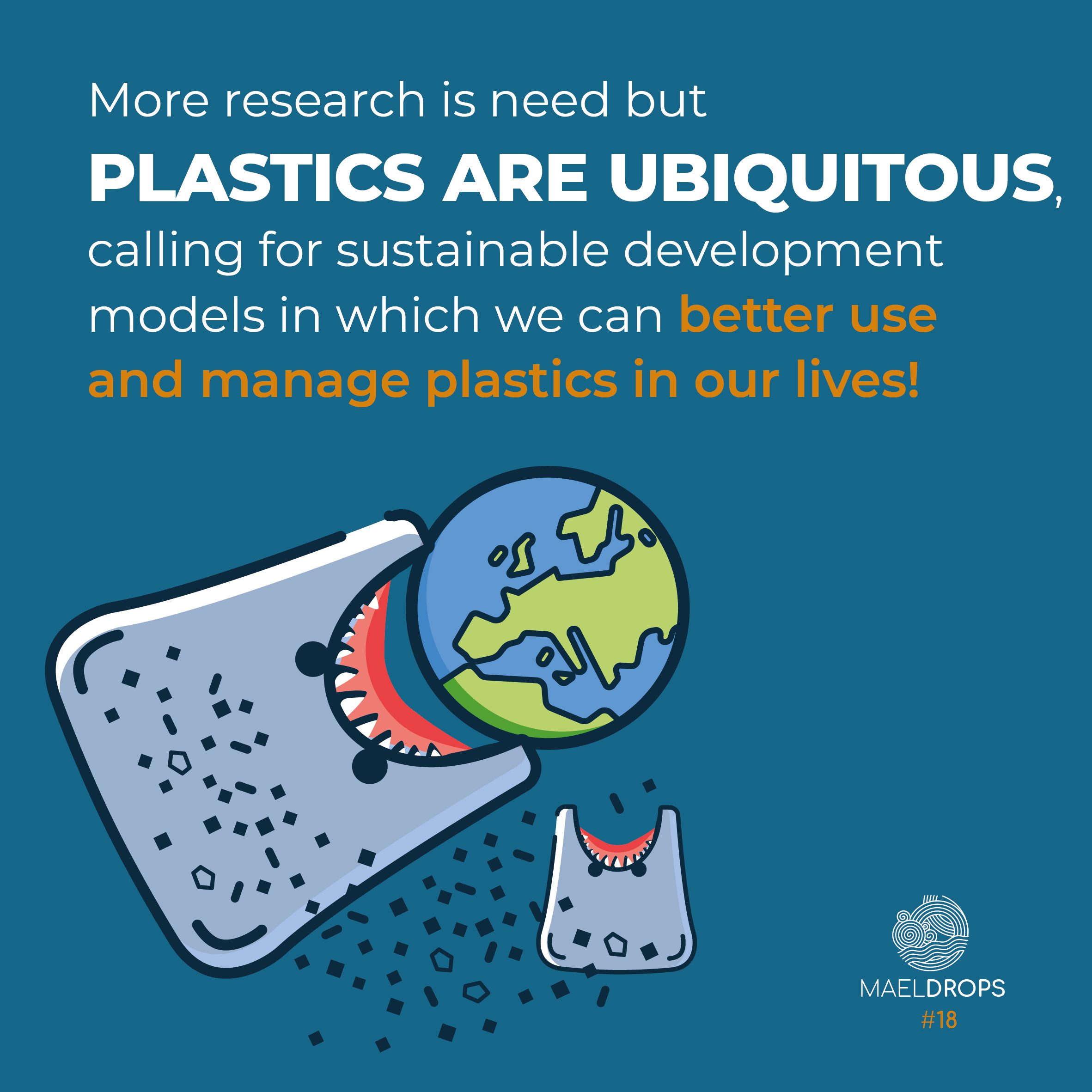MAELDrop #18 | The effects of plastics on human health

In the last years research has increasingly highlighted the impacts of plastic pollution in ecosystems, especially marine ecosystems, but what about the effects on the human species?
#Plastics found in the oceans can reach our table, especially through the food web. According to several studies, humans ingest significant amounts of #microplastics on a daily basis: up to 5 grams per day, although estimates may vary. Microplastics can enter our bodies when we eat fish products in which it has accumulated but also through the breakdown of water bottles, by absorption of some cosmetic products and by air inhalation – just to mention some examples. Research over the years has shown the presence of microplastics in a variety of human tissues, including the placenta [1].
If it is truth that we increasingly know and understand more about the direct and indirect harms which plastics can cause to other species [2], things are less clear when it comes to our own. We know that plastic products are composed not only of the polymer that represents the actual plastic, but also of different types of chemicals that give it specific characteristics which can be toxic to living organisms, acting, for example, as endocrine disruptors (i.e., affecting the production of hormones). Recent studies have also shown how, due to their small size, microplastics can stress cell membranes, destabilizing them [3].
In short, as the World Health Organization reports [4], data are still scarce and there is much to be learned about the possible toxic effects of plastics on human health. However, its presence is ubiquitous, calling for more sustainable development models in which we can better use and manage plastics in our lives.
[1] https://www.sciencedirect.com/science/article/pii/S0160412020322297
[2] https://www.maelstrom-h2020.eu/maeldrop-14-a-new-pathology-plasticosis/
[3] https://www.pnas.org/doi/full/10.1073/pnas.2104610118
[4] https://iris.who.int/bitstream/handle/10665/362049/9789240054608-eng.pdf?sequence=1



